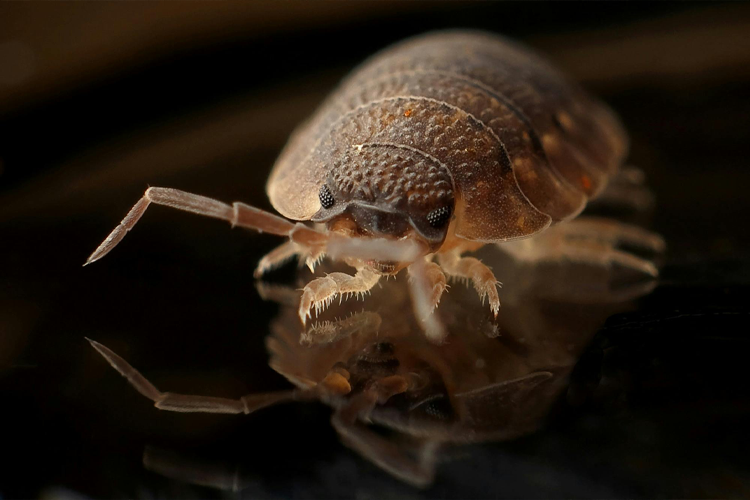Kings Pest Control Expert Cincinnati: Efficient Pest Management
Kings Pest Control Expert Cincinnati: Efficient Pest Management
Blog Article
A Malfunction of the Numerous Kinds Of Insect Control Solutions
In the realm of parasite control, a wide variety of methods exist to resolve and deal with the presence of undesirable creatures. From the standard use of chemical pesticides to extra cutting-edge biological control solutions, each technique provides distinctive advantages and constraints. As we navigate via the diverse landscape of parasite control services, recognizing the complexities of each approach ends up being extremely important in figuring out one of the most efficient strategy. Stay tuned as we check out the nuanced globe of insect control approaches and discover exactly how each kind plays a distinct duty in protecting our settings.
Chemical Pesticides
Chemical chemicals are generally used in insect control to efficiently get rid of a large range of insects and other pests. These pesticides work by targeting the nerve system of the bugs, interrupting their regular features, and inevitably bring about their death. Making use of chemical pesticides has actually been a staple in the pest control industry for years due to their efficiency and fast outcomes.

However, it is crucial to utilize chemical pesticides with care due to their potential hazardous results on the environment and non-target types. Inappropriate application or overuse of these pesticides can cause pollution, damage to beneficial bugs, and resistance development in bug populaces. It is crucial to comply with safety and security standards and regulations when utilizing chemical pesticides for bug control.
Biological Control Approaches
Thinking about the possible ecological effects and dangers related to chemical pesticides, biological control techniques provide a more lasting strategy to managing parasite populations. Organic control involves making use of natural enemies, such as parasites, predators, and pathogens, to subdue bug populations. This approach is usually extra targeted, impacting only the certain insect species while decreasing damage to useful insects, human beings, and the atmosphere.

One advantage of biological control is its long-lasting performance. As soon as developed, natural enemies can assist control pest populations constantly without the requirement for duplicated applications of chemicals. In addition, organic control is often more affordable and can assist minimize chemical resistance in parasite populaces over time. Overall, biological control methods provide a environmentally friendly and sustainable option to pest monitoring.

Mechanical Pest Control
Mechanical parasite control includes the physical adjustment or removal of bugs to manage their populations successfully. One common example of mechanical bug control is making use of traps to catch insects or rats.
An additional mechanical strategy is using barriers such as fencings, displays, or webs to obstruct parasites from entering particular locations. By literally protecting against pests from accessing a place, the probability of problems or damages can be significantly decreased. Furthermore, hands-on approaches like handpicking parasites off plants or structures can be effective for smaller-scale infestations.
While mechanical over here insect control methods can be labor-intensive, they provide a non-chemical option that can be eco-friendly and sustainable. By targeting pests directly, mechanical control techniques can help maintain parasite populaces in check without counting on chemicals.
All-natural Treatments
Making use of natural solutions for insect control supplies a environment-friendly and sustainable strategy to managing parasite populations without resorting to chemical treatments. Natural solutions entail utilizing materials derived from plants, minerals, or various other naturally happening resources to discourage or remove pests.
Furthermore, essential oils such as tea tree oil or neem oil have insecticidal properties that can successfully control insects while being secure for the environment. One more all-natural solution is introducing useful pests like ladybugs or praying mantises to your garden to victimize harmful insects. By integrating these natural services into bug monitoring techniques, individuals can minimize their dependence on artificial chemicals and advertise a healthier, much more balanced environment.
Integrated Parasite Monitoring
Integrated Bug Monitoring (IPM) is a detailed strategy that combines different strategies to efficiently control pest populations while lessening threats to human health and the setting. IPM entails the integration of multiple pest control approaches such as biological control, habitat adjustment, modification of cultural methods, and making use of resistant crop varieties. By utilizing a mix of these strategies, IPM intends to minimize dependence on chemical pesticides, which can have unfavorable effects on communities and human health.
One key facet of IPM is the focus on prevention. By executing steps to avoid pest problems prior to they happen, such as maintaining proper hygiene and securing entry points, the demand for responsive insect blog here control measures is minimized. Surveillance and routine evaluations play an essential role in IPM, permitting early discovery of bug issues and punctual treatment.
Final Thought
In final thought, the numerous types of insect control options supply a range of choices for properly managing insect invasions. Organic control approaches utilize natural predators to manage parasites. Integrated Parasite Management integrates several methods for an all natural approach to pest control.
Chemical pesticides are typically utilized in bug control to properly remove a wide range of insects and other insects.Mechanical insect control includes the physical control or removal of insects to manage their populations efficiently (Kings best pest control cincinnati).Making use of all-natural solutions for rodent exterminator bug control uses a green and lasting method to managing pest populaces without resorting to chemical treatments.Integrated Bug Administration (IPM) is an extensive approach that combines numerous methods to efficiently control pest populaces while lessening dangers to human health and the setting.In final thought, the different types of parasite control options provide a range of alternatives for efficiently managing parasite invasions
Report this page